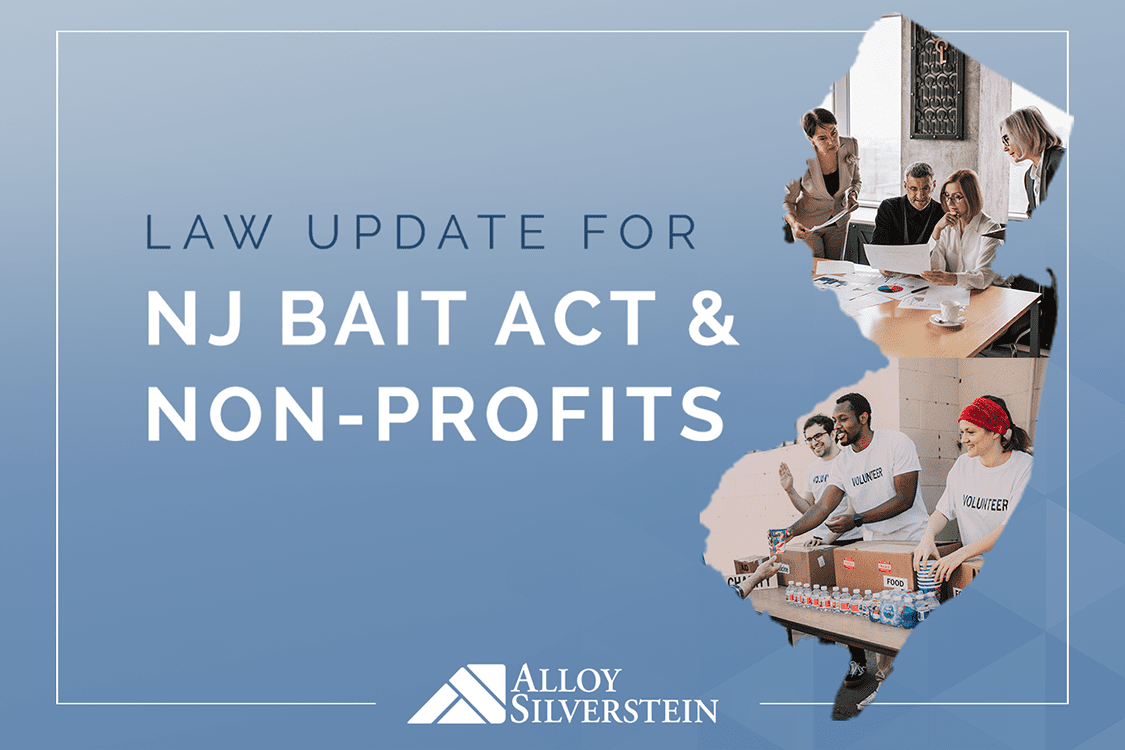

As of January 2022, several new laws have been passed in the state of New Jersey that could impact the tax planning for your business or non-profit.
In late 2020, New Jersey enacted the Pass-Through Business Alternative Income Tax Act (NJ BAIT) in an effort to work around the $10,000 federal cap on individuals’ itemized deductions for state and local income taxes (SALT). This allowed partnerships, S corporations, and LLCs with at least two members to pay state tax on the entity level so that the owners receive a tax benefit through a deduction against their distributive share of income for federal tax purposes. The owners claim a refundable credit on their personal New Jersey return for their share of the state tax paid.
The new law signed by Governor Murphy this week revises and clarifies the NJ BAIT Act in the following five ways:
This legislative update increases the number of New Jersey resident business owners that can benefit from the NJ BAIT Act. If you wish to take advantage of this election, contact an Alloy Silverstein tax advisor to help determine if this is applicable to you.
NJ Bill S844/2533 amends the state’s Charitable Registration and Investigation Act to raise the threshold at which smaller non-profit organizations must file audited financial statements and also allows exclusions of certain non-monetary contributions from the organization’s gross revenue for the purpose of requiring annual disclosure reports.
The intention is that the expenses that would normally be incurred for an audit could otherwise be used to further the charitable mission of these smaller but impactful organizations.
Originally signed into law in July along with a bundle of laws aiming to mitigate employee misclassification, NJ Bill A5892/S3922 instills higher penalties for misclassification if it’s determined through an investigation that the misclassification was a purposeful means of evading payment of insurance premiums. As of January 1, 2022, this law now makes it a violation of the New Jersey Insurance Fraud Prevention Act and is subject to fines starting at $5,000 for the first violation, $10,000 for the second, and up to $15,000 for each subsequent violation.
Should you have questions or need to discuss these matters further, your Alloy Silverstein Accountant and Advisor is just one phone or video call away.
Empowering business owners and individuals in South Jersey and Philadelphia to feel confident through proactive accounting and advisory solutions.